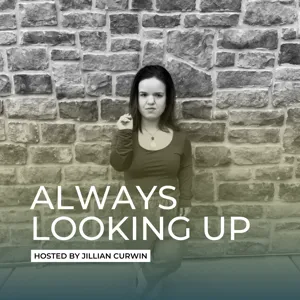Podcast Summary
The emotional value of objects: Objects can hold great value beyond their functional use due to sentimental attachment or personal history.
The emotional significance of objects can stem from various sources, such as sentimental value, personal history, or thoughtful gestures. These objects can hold great value to us, sometimes beyond their functional use. For instance, a handmade mug from a beloved professor might not be used regularly but is kept with care due to its emotional significance. Similarly, a bike that once belonged to a deceased family member might not be used frequently but is cherished and kept as a memory. The sender of the email, Jordan, was curious about how objects acquire value and if using them degrades their worth. However, the hosts, Angela and Mike, shared their personal experiences of sentimental objects and emphasized that the emotional connection to an object can make it valuable and significant, regardless of its functional use.
Sentimental value of objects: We keep objects for their emotional connection to people, events, or times in our lives, rather than just their functionality or attractiveness.
Our attachment to physical objects goes beyond their functional use or attractiveness, and is often rooted in their sentimental value. This value can stem from a connection to a meaningful person or an association with a special event or time in our lives. For instance, the speaker found sentimental value in keeping old baseball cards, mortarboards from graduations, and even a wedding veil, despite not intending to use them again. These objects serve as reminders and evoke positive memories and emotions. Additionally, the idea that we hold onto items from the past, like the speaker's paintings from her mother, can be attributed to this sentimental value.
Sentimental attachments don't follow the same downward trend as other objects: Sentimental items continue to bring joy and meaning due to their connections to people and memories we care about deeply. Find a balance between sentimentality and practicality to hold onto what truly matters while reducing clutter.
While we may habituate to physical objects and their initial pleasure wears off over time, our sentimental attachments to items hold a different value. According to researchers Yang Yang and Jeff Gallick, sentimental attachments do not follow the same downward trend of pleasure or "hedonic adaptation" as other objects. Instead, these items continue to bring us joy and meaning due to their connections to people and memories we care about deeply. The challenge lies in curating our possessions to keep sentimental items while letting go of others. The concept of minimalism, as promoted by Marie Kondo, encourages us to evaluate each item and only keep those that spark joy. However, for some, the thought of discarding parts of a cherished book, for instance, may be difficult. Ultimately, it's essential to find a balance between sentimentality and practicality, allowing us to hold onto the things that truly matter while reducing clutter.
People's attachment to their possessions, especially sentimental ones: Half of people consider a family heirloom their most prized possession, emphasizing the emotional significance of possessions in our lives.
People value their physical possessions, especially those with sentimental meaning, and they hold onto them as keepsakes, much like old friends. The discussion also touched upon the idea that objects can hold more significance than just their physical form, and destroying them intentionally can evoke strong emotions. A survey conducted by Shinola in 2020 revealed that nearly half of the respondents considered a family heirloom to be their most prized possession. Angela shared her attachment to a painting her mother made, while Mike acknowledged the importance of a family heirloom in his own life. The conversation emphasized the emotional connection people have with their possessions and the role they play in shaping our memories and experiences.
Heirlooms: Tangible Reminders of Loved Ones and Their Stories: Heirlooms hold emotional value and become cherished family possessions, as they can symbolize a magical connection to loved ones and their stories. Research shows people have an irrational aversion to consuming items that have come into contact with certain objects, emphasizing their importance as tangible reminders.
Heirlooms hold significant emotional value and can become cherished family possessions for generations. The speaker shares her experiences with her own stuffed animals and her brother's watch, which they plan to pass down. Research suggests that people believe objects can hold a part of the person who used them, creating a magical connection. An experiment by psychologist Paul Rosen demonstrated that people have an irrational aversion to consuming food or drinks that have come into contact with certain objects, even if those objects no longer pose a threat. These findings underscore the importance of heirlooms as tangible reminders of our loved ones and their stories. The speaker's family anecdotes and the research on contagion highlight the emotional significance of objects and the enduring impact they can have on our lives.
Our connections to objects involve both symbolic associations and potential beliefs in essence transmission: Our relationships with objects can involve a combination of literal and symbolic meanings, and the value we place on them can depend on personal history and cultural context.
Our connection to objects can be complex and multifaceted, involving both symbolic associations and potential beliefs in the transmission of essence through physical contact. The example of a sweater once owned by a controversial figure like Hitler illustrates this. While some may feel repelled by the idea of owning or even touching such an object due to its symbolic associations, others may see it as a reminder of history that should be preserved. This raises questions about the role of magical thinking and the importance of sentimental attachments in our lives. Ultimately, it seems that our relationships with objects can involve a combination of literal and symbolic meanings, and the value we place on them can depend on a variety of factors, including personal history and cultural context.
The importance of saving personal items from our past: Preserving past journals and photos can offer insights into our personal growth and past selves, but we may overlook their value and take them for granted.
Holding onto personal items from our past, such as journals and photos, can provide valuable insights into our past selves and help us better understand our own personal growth. The speaker deeply regrets not saving his journals from childhood to adulthood, as they could serve as a window into who he was during those formative years. He also acknowledges that he may have projected his present self onto his younger self and misunderstood his past motivations. The speaker's mother's decision to discard his journals was a missed opportunity to preserve a piece of his history. The speaker reflects on his tendency to resist sentimentality and take things for granted, and he encourages others to consider the value of saving personal items from their past.
The meaning and value of objects can be influenced by emotions and practical considerations: People value objects based on their emotional attachment and frequency of use. Practical considerations can also impact the value of an object.
The meaning and value we attach to objects in our lives can be influenced by various factors, including their sentimental significance and how frequently we use them. According to a survey, family photos and jewelry top the list of Americans' most prized possessions, highlighting the emotional attachment people have towards these items. However, the speaker shared that her mother, who immigrated from China and had limited resources, didn't hold onto these sentimental items due to practical reasons and her lack of sentimentality. Moreover, the value of an object can also depend on whether using it adds or subtracts value. The speaker suggested that most objects become more meaningful when used regularly, but there are exceptions, such as pieces of art. The mug the speaker sent to Mike, which he never used, might accumulate sentimental interest over time, but it might also be less meaningful to him if it were his daily use mug. Ultimately, the meaning and value we attach to objects are subjective and can be influenced by our experiences, emotions, and practical considerations.
Sentimental Items Increase in Value with Time: Use and cherish sentimental items as their emotional attachment and memories make them invaluable, despite the risk of damage or loss.
Sentimental items hold more value when they are used and passed down through generations. This was discussed in relation to jewelry, watches, and even mugs. The idea is that these items carry symbolic meaning and memories, and their value increases with the length of time they have been with us. For instance, a necklace or watch that has been worn by multiple family members can hold significant emotional attachment. However, the fear of damaging these items can sometimes prevent us from using them. The speaker shared a personal story about losing diamond earrings and the emotional distress it caused. She suggested that we should use and enjoy sentimental items, even if they can be lost or broken, as the memories and experiences they represent are invaluable. It's important to remember that these items do not hold the essence of the person who owned them before, but rather serve as a reminder of the time they spent with us. So, use your mug, wear your jewelry, and cherish the memories. It's also worth noting that there were some inaccuracies in the conversation regarding a piece of art owned by Angela. In a previous episode, it was mentioned that the oldest piece of art she has from her mother is a line drawing of her coming home from the hospital as a newborn. However, in this conversation, it was revealed that the oldest piece of art is actually a watercolor painting of a mountain rising from the sea that her mother painted when she was 24 years old.
Journey of change, letting go, and the power of belief: Understanding the power of belief and letting go of misconceptions can lead to personal growth and motivation.
The discussion touched on various themes of change, letting go, and the power of belief. Angela shared a painting that symbolizes her journey from China to the United States, and Mike mentioned Marie Kondo's book on tidying up, which emphasizes keeping only items that resonate with you. The conversation also explored the idea of manifestation, with Angela sharing her experiences of believing in its power, even after realizing it wasn't based on quantum mysticism. Leo added his perspective on how manifestation kept him motivated, even after understanding its true nature. The episode also featured a fact check about apple seeds and cyanide. Despite the common belief that apple seeds contain cyanide, the truth is more complex, and food scientist Islamayat Folashade Bolarinwa confirmed that one would need to consume a large amount of apples and grind up the seeds for the poison to have any effect. Overall, the episode highlighted the importance of understanding the underlying mechanisms behind beliefs and practices, and the power of motivation and belief in driving personal growth.






 Maryland. Elisse is a fresh faced, 21 year old who has a great summer memory with her dad.
Maryland. Elisse is a fresh faced, 21 year old who has a great summer memory with her dad. 